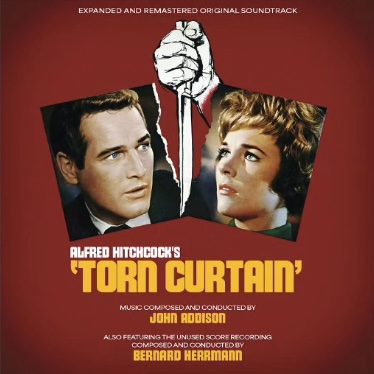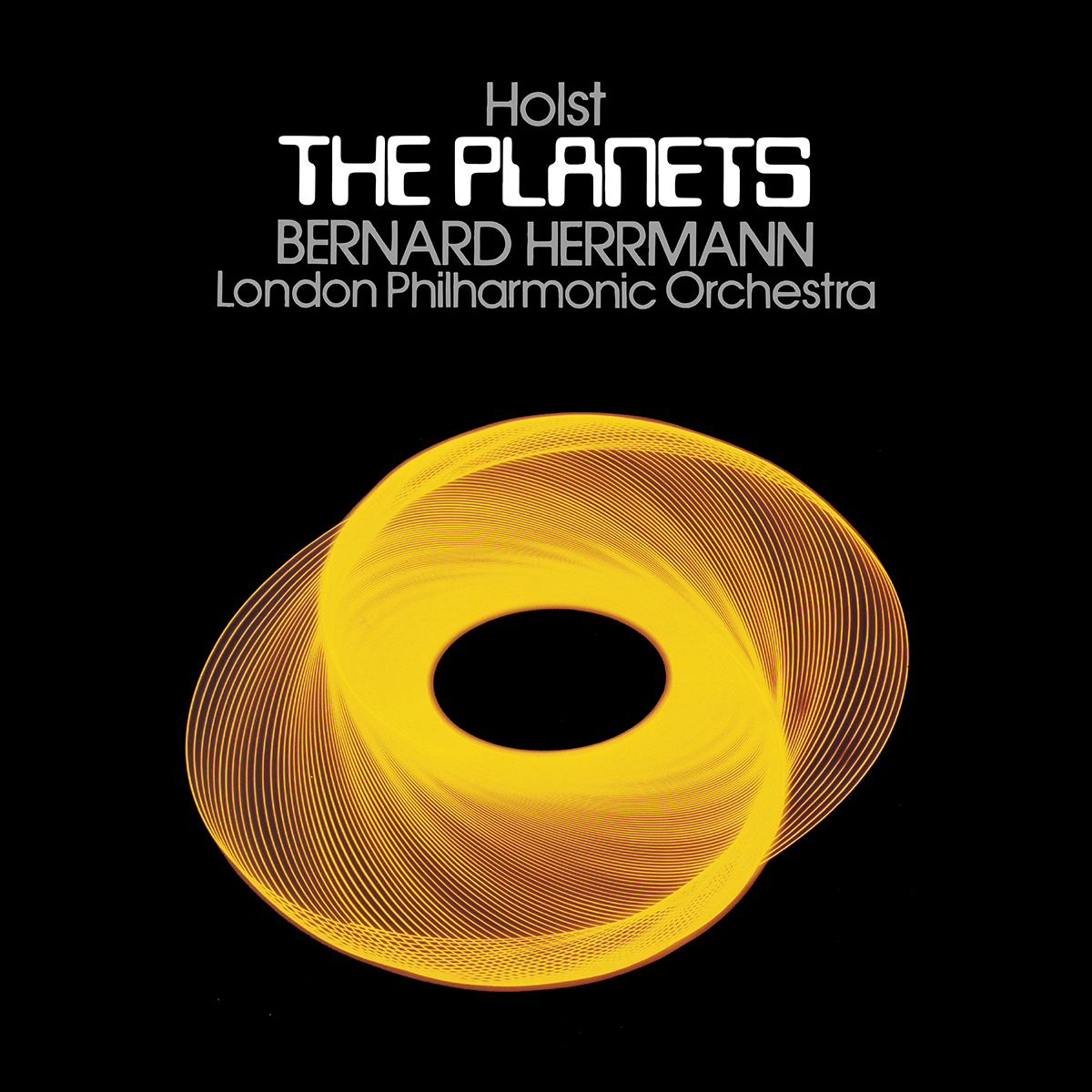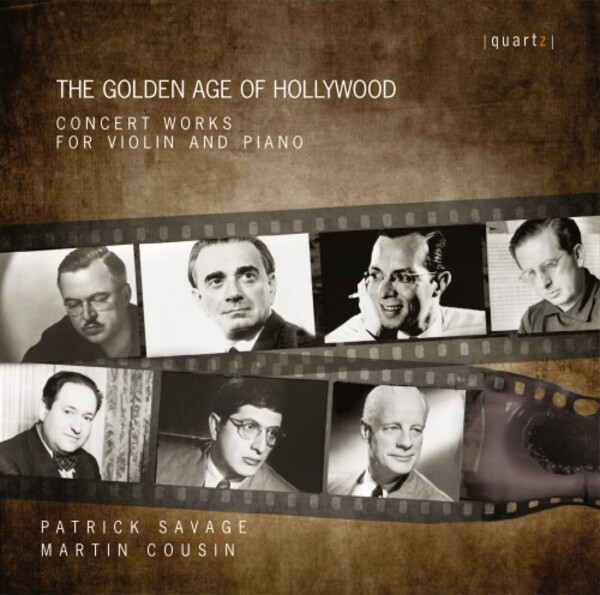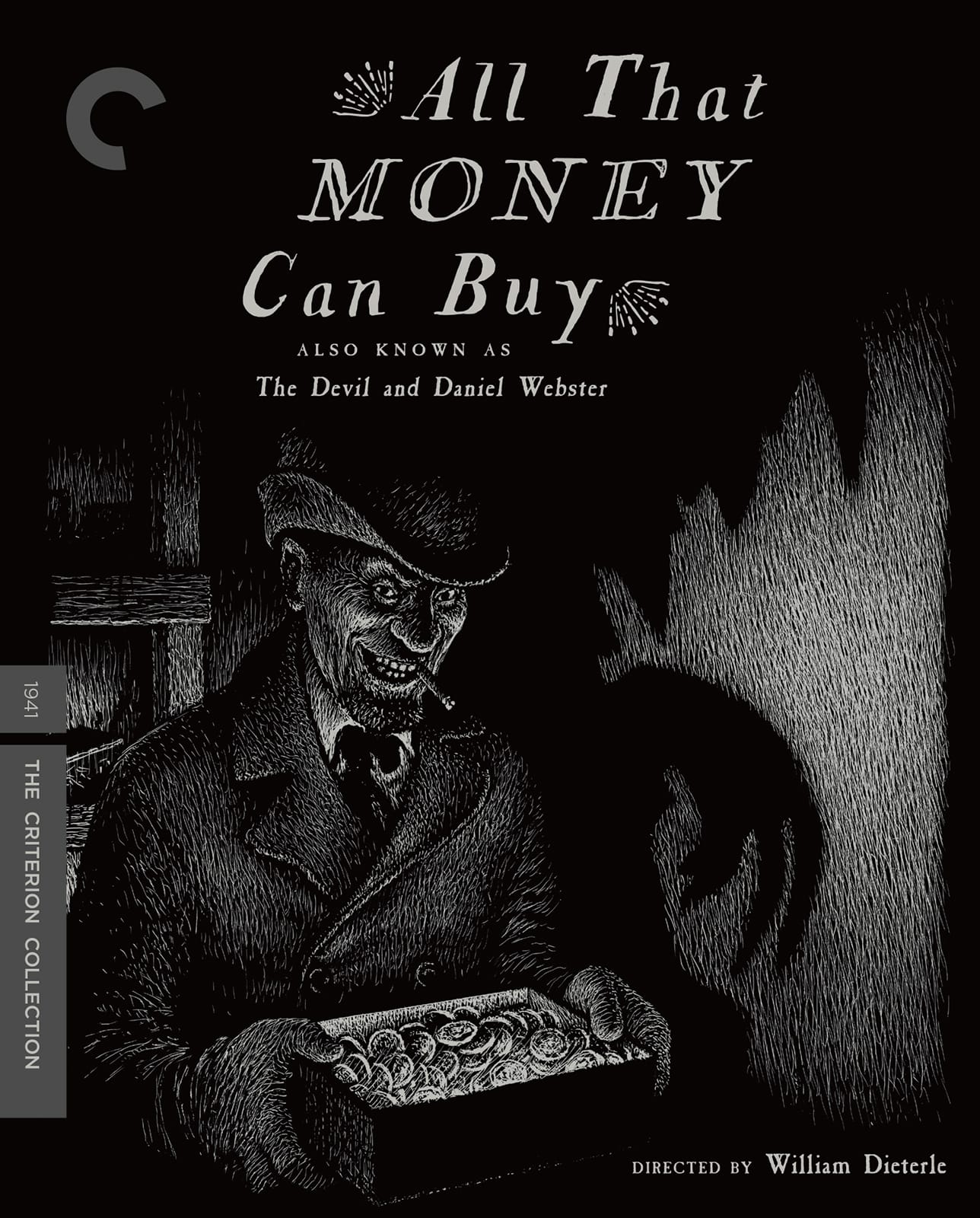Bernard Herrmann and Alfred Newman’s score to The Egyptian (1954) was recorded by the Moscow Symphony Orchestra, conducted by William T. Stromberg and produced by John Morgan, in 1998.
The recording was released on CD by Marco Polo in 1999.
At Lunch in Panorama City, California, Nov. 16, 1999.
Brian Lee Corber: I think that John [Morgan] said recently in [an] e-mail that when you’re up there conducting you feel like Steiner —
William T. Stromberg: Yeah —
BLC: — you feel like Herrmann. He made [a] remark about when you were feeling like Herrmann you were —
Stromberg: Yelling at him. And when I was Newman I was smoking cigarettes. Chain smoking cigarettes.
[break]
Stromberg: Well, the key to getting Herrmann exactly, absolutely–right on– is following the score to a “T.” His scores are more detailed than any other composer who worked in Hollywood. The clarinet section alone would have their own dynamic(s), forte–. Within the choir to the orchestra he notates every note, (every note) has an accent on it, how loud they should be. He’s like Sibelius–very detailed.
BLC: Bowings?
Stromberg: Oh, yeah. Everything. And you make the orchestra adhere to the score to the letter; it will end up sounding like Herrmann. It’ll be ballsy and gutsy. Where the violins are playing very soft, the clarinets are playing fortissimo, meaning loud loud loud. And if you follow that, you’ll get that Herrmann sound.
BLC: How difficult is it convincing the orchestra–?
Stromberg: Oh, it’s not difficult at all. If it’s in front of them, plain black and white, and they see that they should be playing very loud, then they will usually jump right on it and play it. It doesn’t take much coaxing when it’s actually black and white right in front of them. But, there are times when they get lackadaisical and they all just play as a big unit and don’t follow the dynamics properly — That’s the trouble when so many composers don’t put a lot of detail in their scores and so you have to coax it out of them. I find myself, often, with modern composers who don’t notate things — I can tell the composer wanted a certain accent, a marcato feeling when they didn’t notate it properly — so I have to actually, physically — play it — to get a — performance out of them. Where if they had just read the notes as written it would just be blah plain sounding. No articulation. So that’s the key with Herrmann: making the orchestra follow it to a “T.”
BLC: What is the key to getting it right with Newman?

Stromberg: Connected lines. Newman — making the orchestra play full valued notes. Like the string section, especially. Full valued whole notes into the next bar, overlapping and not simply playing from note to note, but playing with a light portamento between notes in the string section – like Hunchback of Notre Dame is filled with that Esmeralda motif. It’s just basically the violin strings in thirds going up and down — you have to have them playing a slight portamento between all these notes (example) — you know what I mean? If you play it the way it’s just written it would be playing just (example). So you have to tell the orchestra to give a gypsy quality to it — you have to play it with great feeling. Portamento is a good word — it means sliding between notes (example). Or tell them to play it sweetly. Sweet, portamento, all these things. With Newman’s music that is like the quintessential string Hollywood sound. Full vibrato. Okay, this is the difference between Herrmann and Newman, especially on The Egyptian even though the thematic material is cohesive, basically, because they were working together with the same thematic material basically. The difference: Herrmann often writes with a very cold sound. He will tell the violins: no vibrato whatsoever. Very coldly and brutally. With Newman everything is played with great vibrato. A lot of vibrato. The violins are just practically sawing the thing in half with their fingers to give it the proper vibrato. Going from Herrmann to Newman, that’s the key right there.
BLC: With Newman you have to communicate more with the orchestra about how it needs to be played.
Stromberg: Yeah, because a lot of his scores don’t even have dynamics, they don’t have articulations. Just basic things that should be there. Herrmann is so much more like Sibelius in that way, everything’s notated. Mahler is very much like that. A lot of guys write in big block style. Newman is kind of like that, too, it’s like big block chords, big block tutti orchestra writing. Full valued. But not a lot of things indicated so it all has to come from the conductor. Of course I’ve gotten familiar with Newman’s music over the years — since I know the stuff so well I’ve learned how to convey it and how to play it. I’ve gotten better. The Egyptian is much better than our Newman album with Beau Geste — that was our first Newman experience, with me conducting and I think we nailed it finally with Egyptian.
[break]
Stromberg: I just want to point out, also (I think I mentioned this in the notes in The Egyptian) since Newman came up with a lot of this thematic material, like the main theme and opening prelude, I think it actually made Herrmann try and achieve something greater than what — I don’t how to word this to where it doesn’t sound — it made him write up a bit. You know what I’m saying? It made him strive for a grander sound or something. It made him just want to be — by trying to be cohesive with Newman involved, I think it made him — what’s the word I’m looking for? Stretch himself.
BLC: There are a lot of issues there.
Stromberg: It made him a little more emotional.
BLC: Herrmann tends to write kind of cold.
Stromberg: Right.
BLC: In some respects his melodies are kind of simplistic.
Stromberg: Right. But in trying to maintain this cohesion with Newman it made him put a little more warmth into it.
BLC: The two of them working together —
Stromberg: Brought out a great whole.
BLC: Better than each of them separately.
Stromberg: Herrmann doing that whole score by himself — might not have been the great score it is.
BLC: It would have been, possibly, a cold score like Garden of Evil is, kind of, a cold score.
Stromberg: Right. I think it’s appropriate that they selected to write the cues they did within the film. It seems that they chose to write more — the styles blend perfectly.
[break]
Stromberg: You know what I’m saying, though, about Herrmann? Not to say that he hasn’t done a great romantic score. Just listen to Jane Eyre, The Ghost and Mrs. Muir, I mean they are just pouring out —
BLC: Aside from The Egyptian, is there any kind of a movie that he ever did that had this, kind of, Hollywood opulence/grandeur–?

Stromberg: No, the only things that I can think of are Ghost and Mrs. Muir — someone, I don’t know who, said this, but, I think John told me that Herrmann told someone once: “This is my Max Steiner score” or something, which is a compliment to Max because it is a great score Ghost and Mrs. Muir. But, Jane Eyre is written in the style of Korngold in a way. It’s like this big opera. Did you know that in Jane Eyre on the scores, he actually wrote the dialog in the place where the opera singer would be written in to the score, so every scene is written like an opera with the dialog in place.
BLC: He didn’t use any of Jane Eyre in Wuthering Heights by any chance?
Stromberg: There’s a little snippet of Jane Eyre but there’s a bigger section from Ghost and Mrs. Muir. There are a couple of little snippets of Jane Eyre.
BLC: You’ve heard that interview that Leslie (Zador) did with Herrmann in the early 70s for the L.A. Free Press–?
Stromberg: Yeah, well Herrmann freaked out. He was wrong to freak out because there are passages that are right out of Ghost and Mrs. Muir. I can pinpoint them; I can drop the needle right on them both. As a matter of fact, I’ve seen the music for both and they’re in the same key and I know it’s the same music. With little variations.
BLC: Still, Herrmann never had that big Hollywood/opulent/Cinemascope/ color/Victor Mature kind of film aside from The Egyptian.
Stromberg: Exactly. And I think the influence of Newman paid off in that respect. I think that shows through right there.
BLC: Do you know how the studio felt about the collaboration? Whether or not they wanted them to work again?
Stromberg: I’m sure that it was enjoyable for Newman. But I don’t know anything about that, I wish I did.
[break]
Stromberg: I enjoyed the film very much. I know a lot of people have been putting it down, criticizing the actors. I enjoy the film, I don’t know why.
BLC: There is only so much of Victor Mature’s chest that I can take.
Stromberg: When I was a kid I loved the music so much. The music took me into the world. It took me into the film. Now I look at the film, I still enjoy it to be honest with you. I don’t know why people criticize it.
BLC: Some of it was miscast. Gene Tierney. Edmund Purdom was certainly–
Stromberg: What’s wrong with him? He’s okay. Everyone’s putting him down — I don’t understand —
BLC: I am only aware of two other movies. I think that he’s extraordinarily low key, almost like he’s not even there.
Stromberg: Yeah. That scene where he’s dying is pretty pathetic until the music kicks in and takes you there. Music helped a lot —
BLC: I think the music–and this is not only true of this movie but a lot of other movies–the music makes the movie.
Stromberg: Oh, it does. Especially the finale of Egyptian.
BLC: –keeps the public interested in this movie at all–
Stromberg: Oh, absolutely.
BLC: Otherwise it would be forgotten.
Stromberg: That’s possible. Very possible.
BLC: There were a lot of epics being made in the early 50s to counter television in Cinemascope and everything —
Stromberg: I think that it’s funny that Peter Ustinov would never look at the film after he made it. He thought that it was the most ridiculous film he ever made. I enjoyed Peter Ustinov in that film. With his one eye.
BLC: The way Victor Mature threw the cup after being told that it was poisoned: you know that this is bad acting. Didn’t look natural at all. I looked like “okay, now I throw the cup–”
Stromberg: There are some moments like that. But who cares? It gave us this great score.
BLC: In the next century, do you think any of this music will be remembered?
Stromberg: A lot of it will be remembered. Yeah. And in some small part (due) to our rerecordings, too. I mean, it really is, and it sounds clichéd to say this over and over and over but it really is our classic music of our day.
BLC: I’ve always believed that.
Stromberg: We’ve said that before in interviews. We say it all the time. It really is true. When people look back on the 90s and the 80s and the Golden Age of Hollywood, of course, specifically, they will look back on it, yeah. I think that’s why so much of it is so popular now, being recorded regularly like classical music. All these different companies like Varese and Marco Polo. Even putting out multiple recordings of certain pieces, popular pieces, even modern music. Poledouris, Elliot Goldenthal getting works performed in concert.
[break]
Stromberg: People are enjoying film music like classical music. It seems to be growing in popularity, and I think in part (due) to the rerecordings that are taking place — I’ve heard our stuff on the radio.
[break]
BLC: Well, now that you’ve done The Egyptian, what about Land of the Pharaohs?
Stromberg: Oh, my God, that’s so mammoth. Oh, I’d love it. If we had all the resources, but in a way that’s why we didn’t do that one big cue on The Egyptian, one of the big marches. It involved, like, 12 trumpets — (we used) a reduced, different orchestra than what the standard orchestra for what The Egyptian was. So we didn’t do that cue because in Moscow we simply couldn’t put that together.
BLC: Was that Herrmann or Newman?
Stromberg: Newman. A great march. It’s the most exciting little piece for me and we didn’t do it, unfortunately.
BLC: Is there anything left from the original tracks on The Egyptian?
Stromberg: Oh. As far as I know, no.
[break]
BLC: (regarding Beneath the 12 Mile Reef) There were some cues from that film used in Lost in Space. I used to think that they were original with Lost in Space.
Stromberg: That’s a score I would just die to do. That’s probably the highest on my list of scores to bring to life. Beneath the 12 Mile Reef complete, every cue. There is so much great music in that that hasn’t been done. Gerhardt did a couple (of) cues from it.
BLC: He didn’t do the “flying” cue. Every time John Robinson was flying around.
Stromberg: No, I know (example). I love that cue so much.
BLC: Perfect for flying around in a jet suit.
Stromberg: It’s perfect for a reef that’s bellowing and it’s perfect for a guy flying around in a suit. So many great cues in that film, though. All that harp stuff–all the harps were recorded separately. Matter of fact the scores are immense, I mean he has one huge score piece/page for the orchestra and a whole separate page for the 9 harps that accompany it. So each page was separate. I never heard of that before. I think it’s amazing — each harp part takes up 2 staves so the paper would be immense. Be a copying nightmare, though.
BLC: Do you compose more like Herrmann where it’s on the page, or like Newman where you have to tell the orchestra what to do?

Stromberg: I compose more like Herrmann. I like to put everything on the page. Then I don’t have to work so hard up there on the podium. I’ve conducted so many of these classic film scores I pick up all these little traits, too. So when I’m orchestrating my own music, which I love to do, anyone’s music, whatever I’m orchestrating, I put in all those little details, accents and dynamics and all that stuff. Of course, what I picked up from Herrmann is a combination of dynamics: you don’t have to have the orchestra all playing loud together all the time. Part of the orchestra can be soft and just the clarinets sticking out loud. It makes quite an impact. So many people today write in the style (of) big hammering away, big orchestra.
[break]
BLC: There is one thing of which a lot of us are unaware. When you hear what you have just performed on a recording — (for example) when you listen to The Egyptian on the CD, how different is it from what you heard in the hall, live?
Stromberg: You know, hopefully, it’s not going to be too different. Really crank it up and sit back and hear it on a good stereo system. But, I find it more often than not I am disappointed when I listen to our discs. The thrill of standing right there in front of the orchestra, there’s nothing like it. It’s immediate. But there’s another joy because sometimes I can’t hear everything from the podium. I don’t hear certain little horn licks that are back there, I don’t hear a certain little line and then I hear the tape. And I go, “Whoa!” It jumps out at me, you know. Because it’s right by a microphone or something.
BLC: How many tracks do they record?
Stromberg: Well, they’ve got multiple mikes set up all over the place. We’re rolling right now to two track stereo.
BLC: The original master —
Stromberg: Right to DAT. We record live right down to the DAT.
BLC: You don’t start with a multiple track?
Stromberg: We don’t mix it or anything. I wish we did. We have to balance that live. A lot of that is up to me and, of course, John sitting in the booth. If something sounds off, out of whack, he’s going to fix it.
BLC: Does this make you a bit nervous?
Stromberg: No, not at all. It makes me nervous when he doesn’t say anything. Because he’s supposed to be saying something.
BLC: You’re not recording everything and having the luxury of sitting back later to fix anything–?
Stromberg: Believe me, (that) makes me nervous. Like, The Egyptian main title took me forever to get on tape properly. The way I wanted it. Because I knew it so well. We went through that thing so many times. I wanted it to sound like the original; I wanted it to feel like the original. The trombones to be up front and loud with the right accents and everything. When they first read through that, it didn’t sound anything remotely like The Egyptian. As a matter of fact, almost everything we record in Moscow, first time through it’s almost unrecognizable. And then by the third time it’s sounding pretty much like what we need. The first rehearsal doesn’t go on tape, we’ll probably go through it maybe three times and then start recording. And we go cue by cue.
[break]






![The Man Who Knew Too Much – 4K restoration / Blu-ray [A]](../../wp-content/uploads/2023/11/TMWKTM-4K.jpg)
![The Bride Wore Black / Blu-ray [B]](../../wp-content/uploads/2023/07/BrideWoreBlack.jpg)
![Alfred Hitchcock Classics Collection / Blu-ray [A,B]](../../wp-content/uploads/2020/07/AHClassics1.jpg)
![Endless Night (US Blu-ray) / Blu-ray [A]](../../wp-content/uploads/2020/03/EndlessNightUS.jpg)
![Endless Night (UK Blu-ray) / Blu-ray [B]](../../wp-content/uploads/2019/12/ENightBluRay.jpg)